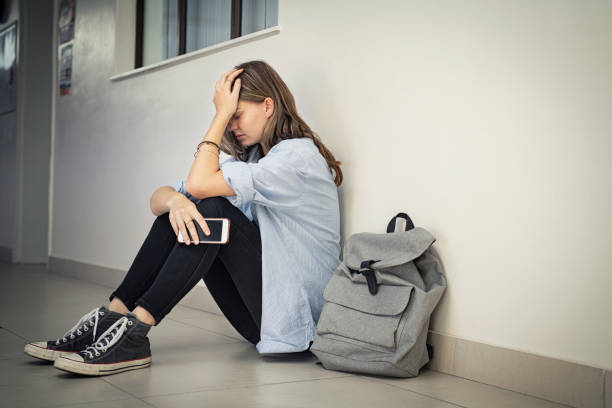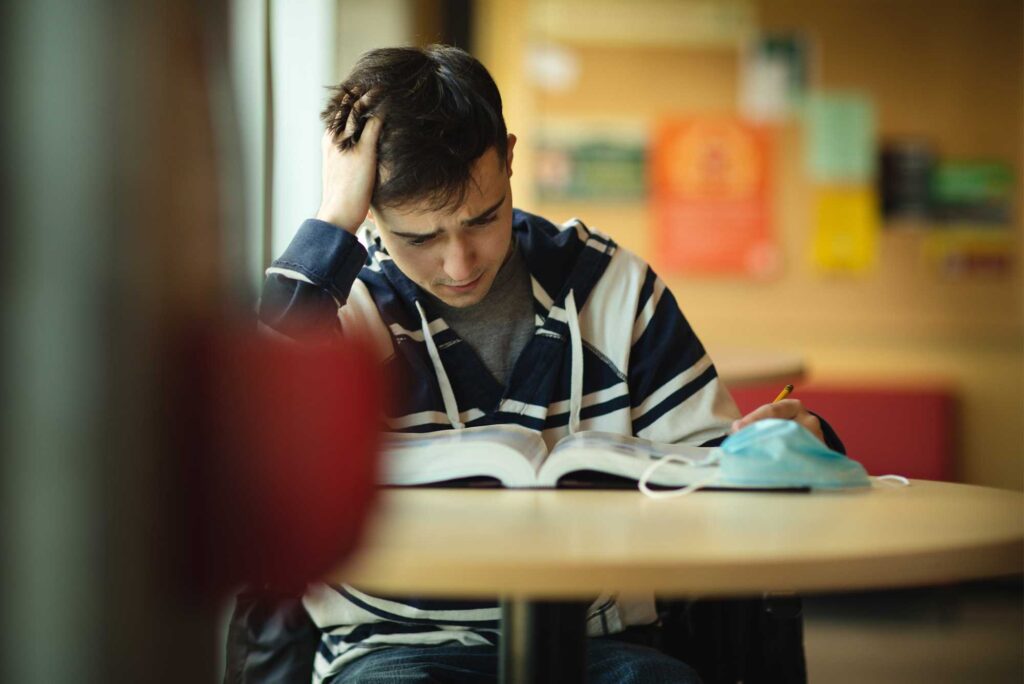Back to School and Mental Health: Understanding the Psychological Impact on Students

As summer draws to a close, students across the world prepare to return to school, a transition that brings a mixture of excitement, anxiety, and uncertainty. While many anticipate the opportunity to reconnect with friends and engage in new learning experiences, others face this period with trepidation. This seasonal transition can significantly impact a student’s mental health, making the topic of “back to school and mental health” an important issue for parents, educators, and mental health professionals to address.
This article will explore the psychological implications of the back-to-school period on mental health, examining how stress, anxiety, and other mental health challenges manifest in students. It will also delve into the specific factors that contribute to these challenges and offer strategies to support students during this critical time.
The Stress of Transition: A Psychological Perspective

The transition from the carefree days of summer to the structured environment of school can be a significant source of stress for students. This transition is one of the key focal points when discussing back to school and mental health. Psychologically, transitions represent periods of change that can be both exciting and overwhelming. For students, this shift often involves adjusting to new routines, meeting academic expectations, and socializing with peers after a long break. These changes can trigger stress responses, particularly in children and adolescents who may struggle with adapting to change.
The stress of returning to school can manifest in various ways, including physical symptoms such as headaches, stomachaches, and fatigue. Emotionally, students may experience heightened anxiety, irritability, and mood swings. In severe cases, the anticipation of returning to school can lead to school refusal, where a student avoids or refuses to attend school due to overwhelming anxiety.
The impact of back to school and mental health concerns is particularly pronounced among students who have experienced difficulties in previous school years, such as bullying, academic challenges, or social isolation. These students may associate the return to school with negative experiences, leading to increased stress and anxiety. For others, the prospect of starting a new school or entering a new grade level can evoke feelings of uncertainty and apprehension.
Anxiety and Fear of the Unknown

Anxiety is a common mental health issue that affects students during the back-to-school season. The fear of the unknown is a major contributor to this anxiety. Whether it’s the uncertainty of new teachers, unfamiliar classmates, or the challenges of more demanding coursework, students often face a variety of unknowns when returning to school.
The connection between back to school and mental health is evident in how students experience anxiety about their academic performance. The pressure to succeed and meet expectations can lead to performance anxiety, which may manifest as difficulty concentrating, procrastination, or a sense of impending failure. Students who are perfectionists or who have a history of struggling with academics are particularly vulnerable to this type of anxiety.
Social anxiety is another significant aspect of back to school and mental health. For many students, returning to school means navigating social dynamics, forming new friendships, and potentially encountering social pressures such as peer conformity or bullying. Adolescents, in particular, are at a developmental stage where peer acceptance is crucial to their sense of self-worth, and the fear of social rejection can be overwhelming.
It is important to recognize that anxiety related to back to school and mental health is not limited to older students. Even young children can experience separation anxiety when returning to school after spending an extended period of time at home with their families. The fear of being away from a primary caregiver, coupled with the unfamiliarity of the school environment, can lead to intense emotional distress in younger children.
The Impact of Academic Pressure
Academic pressure is a significant factor in the relationship between back to school and mental health. As students return to school, they are often met with the expectations of performing well in their studies, which can create a sense of pressure and overwhelm. This academic pressure can come from various sources, including parents, teachers, and even the students themselves.
For high-achieving students, the pressure to maintain good grades and excel in extracurricular activities can contribute to high levels of stress and anxiety. These students may feel that their self-worth is tied to their academic achievements, leading to perfectionism and an unhealthy obsession with success. In some cases, this pressure can result in burnout, a state of physical and emotional exhaustion caused by prolonged stress.
On the other hand, students who struggle academically may experience feelings of inadequacy and frustration when faced with the demands of the school curriculum. This can lead to a negative cycle where academic difficulties contribute to low self-esteem, which in turn exacerbates feelings of anxiety and depression. The relationship between academic challenges and mental health highlights the importance of addressing back to school and mental health issues from an academic perspective as well.
Educators play a crucial role in mitigating the impact of academic pressure on students’ mental health. By fostering a supportive and inclusive learning environment, teachers can help reduce the stress associated with academic performance. Encouraging a growth mindset, where students view challenges as opportunities for learning rather than as threats to their self-worth, can also promote positive mental health outcomes during the back-to-school period.
Social Relationships and Mental Health
The social environment of school plays a critical role in shaping students’ mental health, making social relationships a key consideration in discussions of back to school and mental health. Positive peer relationships can provide students with a sense of belonging, support, and security, which are essential for psychological well-being. Conversely, negative social experiences, such as bullying, exclusion, or peer pressure, can have detrimental effects on mental health.
Bullying is a pervasive issue that affects many students and is closely linked to the back-to-school period. Students who have been victims of bullying in the past may dread returning to school, fearing that the bullying will continue or escalate. The psychological impact of bullying can include anxiety, depression, and even suicidal thoughts in severe cases. The rise of cyberbullying has further complicated this issue, as students may face harassment not only at school but also online, making it difficult to escape the torment.
Social isolation is another significant concern when it comes to back to school and mental health. Students who struggle to make friends or who feel excluded from their peer groups may experience loneliness and a sense of alienation. This social isolation can contribute to feelings of sadness, anxiety, and depression. Adolescents, in particular, are at an age where peer relationships are central to their identity development, and the absence of positive social connections can have a profound impact on their mental health.
Promoting a positive school culture that values inclusivity, empathy, and kindness is essential for supporting students’ mental health. Schools can implement programs that address bullying and promote positive peer interactions, helping to create a safe and supportive environment for all students.
The Role of Parents and Caregivers
Parents and caregivers play a crucial role in supporting their children’s mental health during the back-to-school transition. The relationship between back to school and mental health is often influenced by the support systems that students have at home. Parents can help ease their children’s anxiety and stress by providing emotional support, maintaining open lines of communication, and fostering a sense of stability during this period of change.
One of the most important things parents can do is to validate their children’s feelings. Acknowledging that the transition back to school can be challenging and offering reassurance can help reduce feelings of anxiety. Parents can also help their children develop healthy coping strategies, such as time management, relaxation techniques, and problem-solving skills, which can be beneficial for managing the stress associated with returning to school.
In addition to emotional support, parents can also play a practical role in preparing their children for the new school year. Establishing routines, such as regular sleep schedules and homework time, can help students adjust to the demands of school life. Additionally, involving children in back-to-school preparations, such as shopping for school supplies or organizing their study space, can give them a sense of control and readiness for the upcoming year.
For students who are struggling with more severe mental health challenges, parents may need to seek professional help. Consulting with a school counselor, psychologist, or therapist can provide students with the support they need to navigate the emotional challenges of returning to school.
The School’s Role in Promoting Mental Health

Schools are not only places of learning but also critical environments for promoting mental health. Recognizing the connection between back to school and mental health, schools can take proactive steps to support students’ well-being during the back-to-school period and throughout the academic year.
One effective approach is to provide mental health education as part of the school curriculum. Teaching students about mental health, coping strategies, and emotional regulation can empower them to take charge of their mental well-being. Schools can also offer workshops or seminars for students, parents, and staff on topics such as stress management, mindfulness, and resilience-building.
In addition to education, schools can provide direct mental health support through counseling services. School counselors play a vital role in helping students navigate the emotional challenges of school life, offering individual or group counseling sessions, crisis intervention, and referrals to outside mental health resources when necessary. Schools can also implement peer support programs, where trained students provide support and guidance to their peers who may be struggling with mental health issues.
Creating a positive and inclusive school culture is another essential component of promoting mental health. Schools can establish programs that promote kindness, empathy, and respect among students, helping to create an environment where all students feel valued and supported. Anti-bullying campaigns, diversity and inclusion initiatives, and social-emotional learning programs are all effective ways to foster a supportive school community.
The Long-Term Impact of Back to School and Mental Health
The mental health challenges associated with the back-to-school transition can have long-term effects on students’ well-being and academic success. When students experience ongoing stress, anxiety, or depression related to school, it can interfere with their ability to focus, engage in learning, and perform academically. Over time, these mental health challenges can lead to academic difficulties, absenteeism, and even dropping out of school.
Moreover, the mental health struggles that begin during the back-to-school period can extend beyond the school year and into adulthood. Chronic stress and untreated mental health issues during childhood and adolescence can contribute to the development of more serious mental health disorders later in life, such as generalized anxiety disorder, major depressive disorder, and substance use disorders.
Recognizing the importance of back to school and mental health and addressing these challenges early on is crucial for preventing long-term negative outcomes. By providing students with the support and resources they need to manage their mental health, schools, parents, and communities can help set students on a path toward emotional well-being and academic success.
Strategies for Supporting Mental Health During the Back-to-School Transition

There are several strategies that students, parents, and schools can implement to support mental health during the back-to-school period:
- Encouraging Open Communication: Students should feel comfortable discussing their feelings and concerns with trusted adults, whether that be a parent, teacher, or counselor. Open communication can help identify mental health challenges early on and ensure that students receive the support they need.
- Fostering Healthy Routines: Establishing regular routines for sleep, meals, and homework can help students adjust to the structure of school life and reduce feelings of overwhelm.
- Promoting Relaxation and Self-Care: Encouraging students to engage in relaxation activities, such as mindfulness, yoga, or creative hobbies, can help them manage stress and improve their overall well-being.
- Creating a Supportive School Environment: Schools can implement programs that promote positive social interactions, inclusivity, and mental health awareness, helping to create a school culture where all students feel supported and valued.
- Seeking Professional Help: For students who are struggling with more severe mental health challenges, professional support from a counselor, psychologist, or therapist may be necessary. Early intervention can prevent the escalation of mental health issues and promote long-term well-being.
Conclusion
The connection between back to school and mental health is a complex and multifaceted issue that requires the attention of parents, educators, and mental health professionals alike. As students transition from the relaxed pace of summer to the demands of the school year, they may experience a range of emotional challenges, from stress and anxiety to social isolation and academic pressure.
By understanding the psychological impact of the back-to-school period on mental health and implementing strategies to support students, we can help ensure that the return to school is a positive and enriching experience for all students. Supporting mental health during this critical transition period is essential for fostering both academic success and emotional well-being, setting the foundation for a healthy and fulfilling future.
